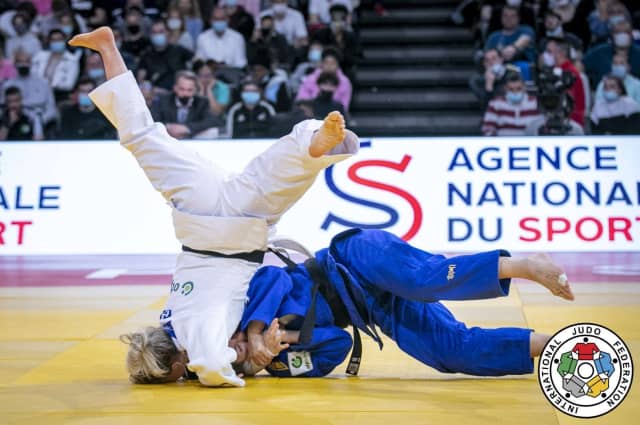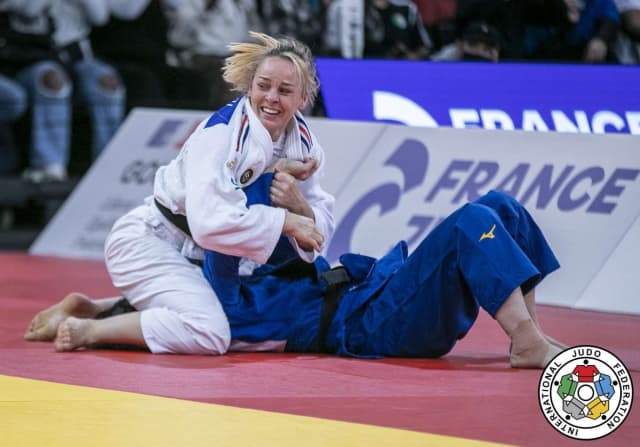Everyone has challenges and whomever says otherwise is lying. The difference lies in the severity of those problems. Margaux's were important, level ten on a scale of zero to ten. C'est la vie and sometimes life sucks. “I kept going over and over in my head, thinking about the same thing over and over again,” Margaux confessed to us in Paris. It is not worth describing what happened to her because everyone knows it. The thing is, she was mentally exhausted, hurt, disoriented. Like this, nobody can compete at the highest level. Margaux stumbled through 2021.
The Olympic gold was a feat because her judo was not the same as always, she was incapable of producing something solvent. Where she found the uchi-mata that gave France the victory in the semi-final of the team competition is still something that nobody understands, not even her. After the Games and with the problem entrenched, Margaux became discreet but reappeared at the Paris Grand Slam a few days ago. There was curiosity to know which version of the Frenchwoman we would find. Since she is different now, it took fifteen seconds to answer our questions. An expeditious waza-ari against the Cuban Idelannis Gómez Feria and another fifteen seconds later saw victory and a smile, the first in many months.
“I have come without preconceived plans, no strategies. I have done everything by instinct. I usually start like a diesel, I go slower.”
The second touchstone was the Japanese Yoko Ono, another level, more demanding. The fight lasted longer, normal, but in the end Margaux emerged victorious. Another smile, the crowd getting hot and us with a huge question mark to answer. What has happened to Margaux to be this good?
“I have fixed my problems, I have liberated myself, literally. I have cleaned everything that was dirty in my life, I have discovered who my real friends are, the ones who love me and the ones who are there when I need them.”
That was what weighed her down, what prevented her from being happy and dedicating herself to judo with a clear mind, because judo is her job, what feeds her. In the semi-final things reached the true dimension of what the Paris tournament represents, with the world champion, the Croatian Barbara Matic, as the opponent. Margaux held on, set up the blow and scored waza-ari; to the final with the third smile of the year. That grin of satisfaction was stored deep within her, but she had no reason to show it. She was the protagonist of the morning, for what she did, for how she did it, because she came from hell.
In the final there was another Japanese judoka, Saki Niizoe, a way of saying that not everyone wins in Paris; here the demand is absolute in all the fights. Margaux won and smiled again and once more on the podium. Four clear and forceful victories, with different techniques and a body language that exudes emotional well-being. It is clear that the therapy works.
“I look for new goals, varied horizons, I do everything in a different way.” Margaux has gained her independence and now she is the one who decides what she wants and how to do it. Perhaps that is her best victory, realising her true strength, the one that lies in her will. The rest, what can be seen on the mat, is the result of the decisions she has made.
Maybe she will win again, or not, judo offers no guarantees. What she has promised herself is never to bow down in the face of adversity, because her life depends on it, because freedom is not something free. And we thank her for the good of judo and because we want to see her smile again.
Margaux’s default, her response to life’s challenges was to reconnect with judo. She gave of her best and for us, in Paris, it was truly the best. She smiled because she won for herself as much as for any medal and now she will continue to concentrate on the judo and nothing else.




